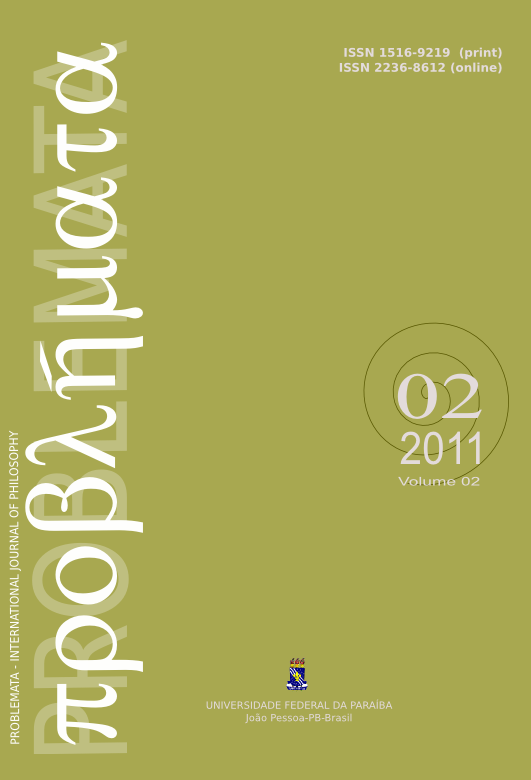TO KNOW AND TO FEEL IN NIETZSCHE<a href="http://dx.doi.org/10.7443/problemata.v2i2.11056"><i> <b>[doi: 10.7443/problemata.v2i2.11056]</b></i></a>
DOI:
https://doi.org/10.7443/problemata.v2i2.11056Keywords:
Conoscenza, essere umano, linguaggio, pensiero, NietzscheAbstract
Nietzsche maintains that the field of knowledge is tightly related to the world of vital instincts. A paramount consequence is the well known deconstruction of the ideas of subject and conscience. This thesis is however developed in different ways in the several phases of Nietzsche’s thought. In the so-called Enlightenment period (spanning from Human, all too human to The gay science) this interpretation carries a decidedly naturalistic meaning. It considers the products of abstract thinking itself as the consequence of the self-conserving function of physical impulses, according to the patterns of the positivistic science of the time. From The gay science onwards, instead, the bound between thinking and physical drive leads to a re-evaluation of the Einverleibung, i.e. of the need to express thinking itself into emotional biases, which are entangled with the bodily life. These tight unity of thinking and corporality is easy to understand within the traditional interpretation of Nietzsche’s thought as an expression of philosophical vitalism. Yet it arises some difficulties, if Nietzsche is on the contrary considered as a possible theoretical model for a contemporary re-interpretation of the intercourse between mental and physical activity.
Downloads
Downloads
Published
Issue
Section
License
Authors who publish with this journal agree to the following terms:
- Authors retain copyright and grant the journal right of first publication with the work simultaneously licensed under a Creative Commons Attribution License that allows others to share the work with an acknowledgement of the work's authorship and initial publication in this journal.
- Authors are able to enter into separate, additional contractual arrangements for the non-exclusive distribution of the journal's published version of the work (e.g., post it to an institutional repository or publish it in a book), with an acknowledgement of its initial publication in this journal.
-
- Authors are permitted and encouraged to post their work online (e.g., in institutional repositories or on their website) prior to and during the submission process, as it can lead to productive exchanges, as well as earlier and greater citation of published work (See The Effect of Open Access).





